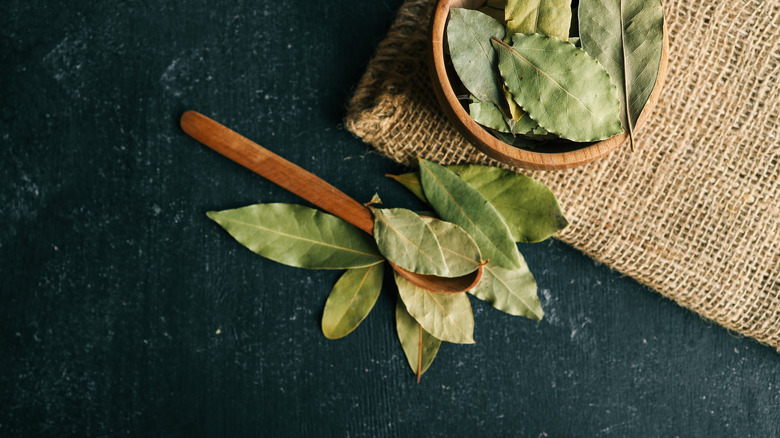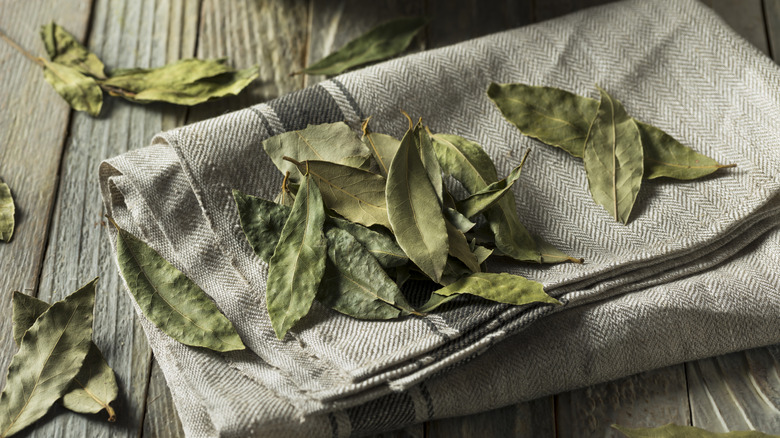Should You Be Putting Bay Leaves In Your Washing Machine?
If you open up any social media app, you'll find laundry hacks like vinegar rinses or baking soda boosts making the rounds. One of the more surprising ones includes tossing bay leaves into your washing machine. Advocates of the trick swear that the humble kitchen staple does far more than flavor soup. They claim bay leaves release compounds that kill bacteria, freshen up musty clothes, and even help clean out a washing machine that is otherwise prone to mold. According to this viral trick's logic, a handful of leaves could be the secret hack to leave your clothes smelling fresh without chemical-heavy detergents. However, since there's no scientific evidence that bay leaves do any of this, it's better to skip adding them to your laundry.
Still, that hasn't stopped people from trying. The hack has spread widely across Instagram Reels and word-of-mouth recommendations from those who believe it works. After all, laundry is one of those chores where everyone is looking for shortcuts, whether it's making clothes smell fresher, keeping whites bright, or getting rid of the mildew smell. Bay leaves feel like the kind of old-world remedy that might just hold hidden wisdom. But as charming as the idea is, separating fact from fiction is important when it comes to something as practical as your washing machine.
The truth about bay leaves for fresher laundry
Studies have found that bay leaves carry essential oils like terpenes, eucalyptol, and methyleugenol. These compounds contribute to the plant's distinct scent profile, a mix of camphor, subtle herbs, and a hint of fruitiness. In cooking, that aroma adds richness to soups and stews. As a dried herb, bay leaves release a spicy fragrance when crushed, which is why they're often described as highly aromatic. But while science supports that bay leaves smell pleasant, there's no evidence that tossing them into a washing machine does anything to keep the stinkiest laundry smelling fresh. At best, you might notice the scent of the leaves themselves, but it's highly unlikely that the fragrance will transfer to your clothes or somehow sanitize the drum of your machine. The idea sounds appealing in theory, yet it falls apart under scrutiny.
Experts remain doubtful of the tip because the advice is imprecise. Many sources vaguely suggest throwing in "a few leaves," but that raises obvious questions: how many leaves count as a few? Should they be large or small? With such variation in size and strength, the recommendation feels unscientific at best. There doesn't seem to be an active downside to trying it out, but there's also no proof that it works. Without controlled testing or credible research, the bay leaf hack seems more like a recycled home remedy than a proven cleaning method.

